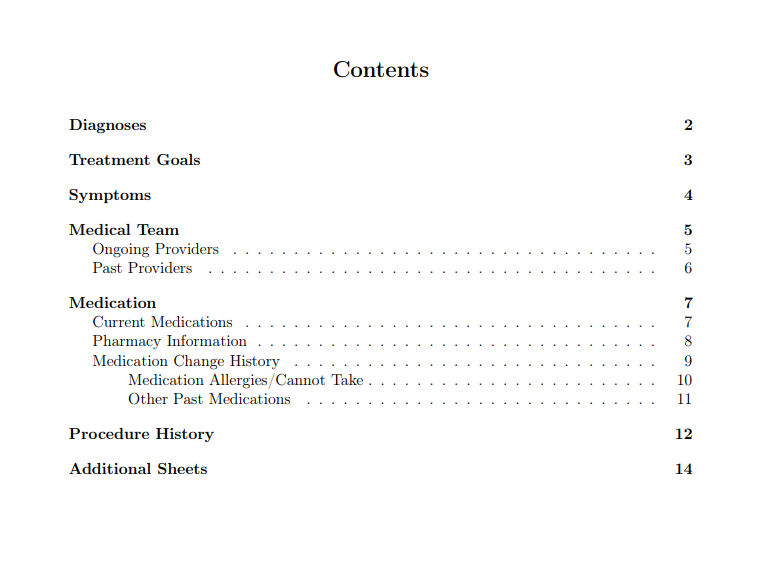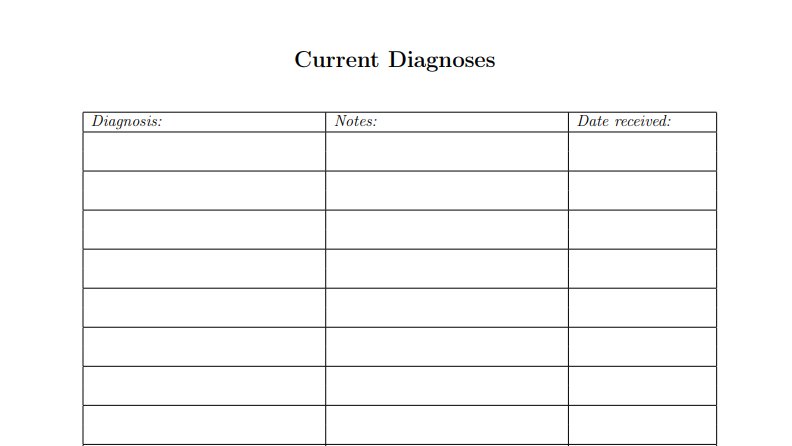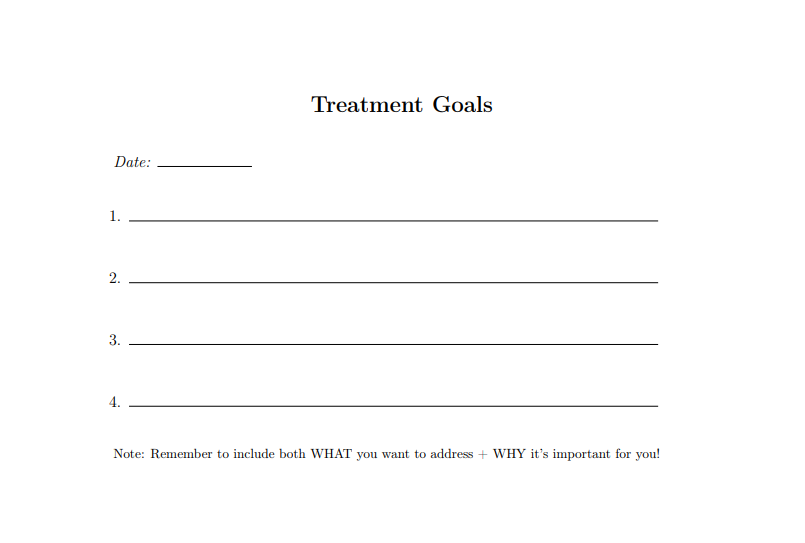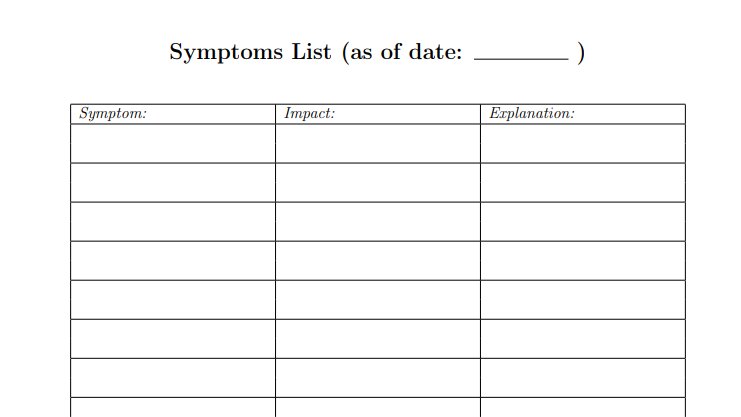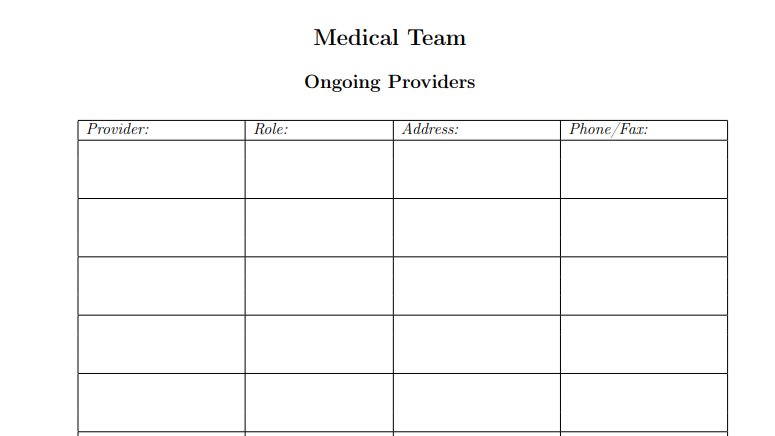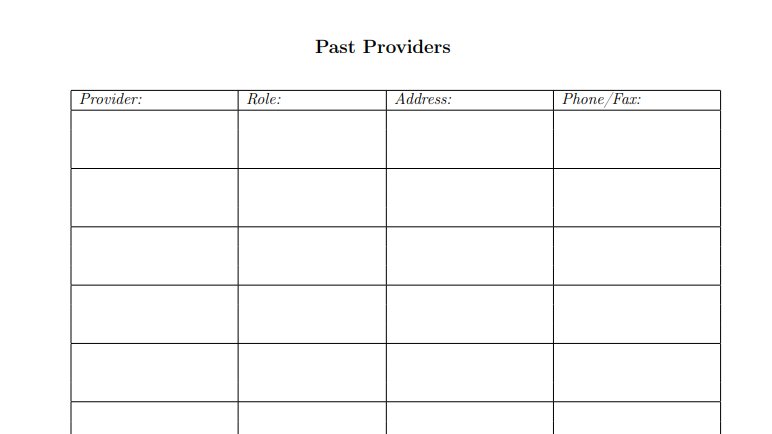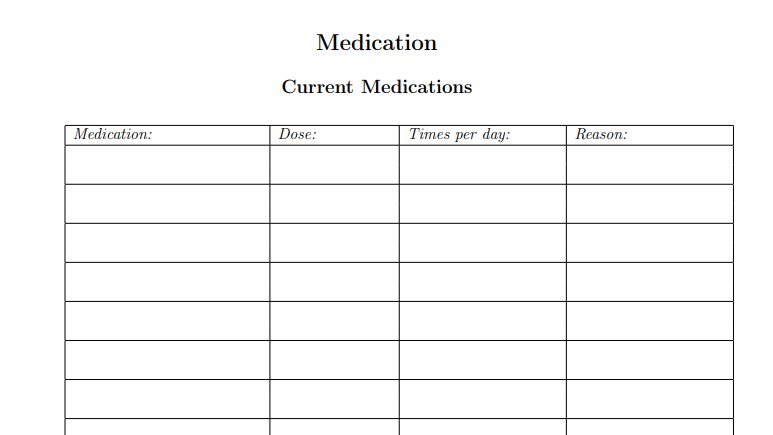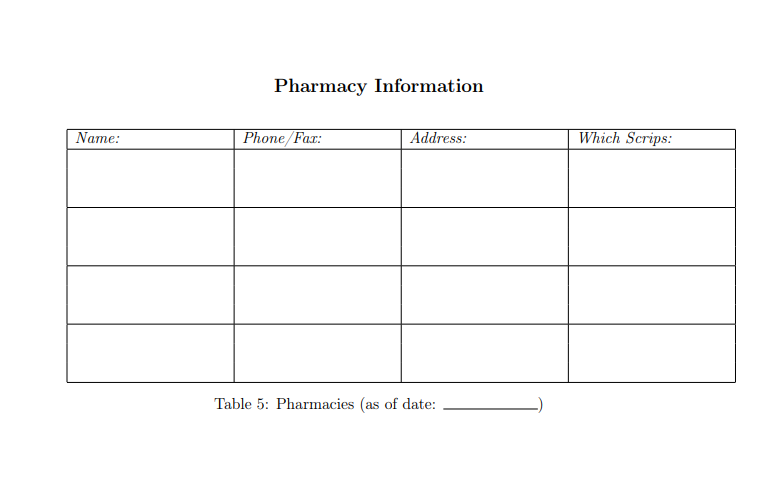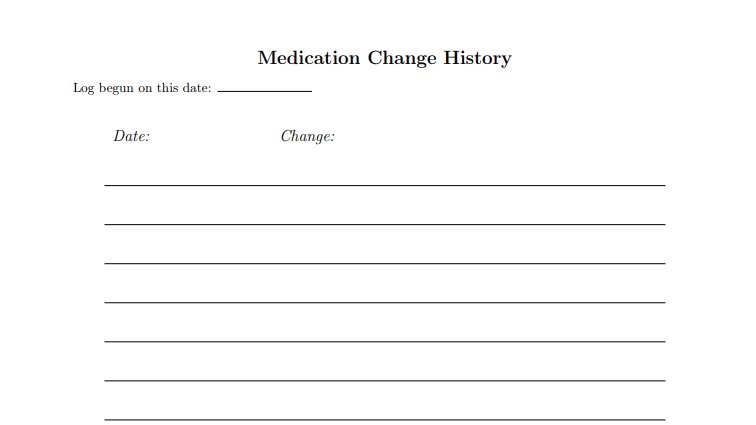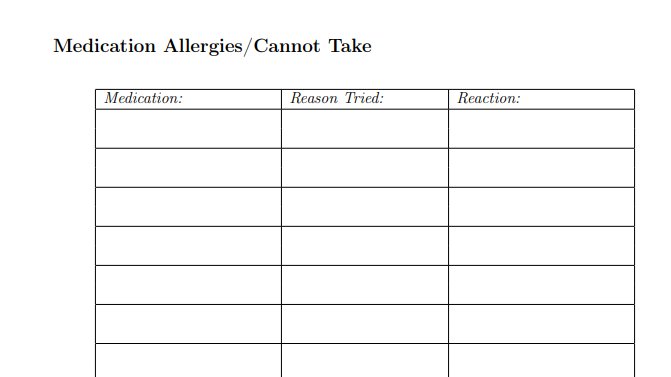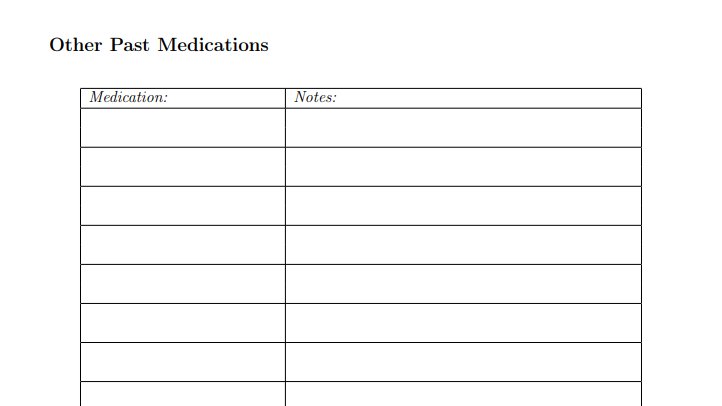medical info binder thread! intended for #ChronicIllness & #neisvoid folks. shares how I track stuff, thoughts on format, etc. ymmv/adapt to your own needs, of course!  https://abs.twimg.com/emoji/v2/... draggable="false" alt="✌️" title="Siegeshand" aria-label="Emoji: Siegeshand">
https://abs.twimg.com/emoji/v2/... draggable="false" alt="✌️" title="Siegeshand" aria-label="Emoji: Siegeshand">
background on this project: I started my medical binder in 2017, after I had to leave work/school due to disability. I was already being treated for bipolar 1 and narcolepsy, but I had lots of unexplained symptoms. joint pain, brain fog, dizziness, nausea, digestive stuff...
once I established care with a solid PCP, I started getting referrals. lots of them. suddenly I needed to produce information at appointments. about my meds, my symptoms, my medical history, my other providers...
doctor visits rush by so fast! one missed question, one fact you can& #39;t remember quickly enough, and you may be stuck for 3 months or 6 months or longer until you get another opportunity to ask a qualified professional. which sucks.
so I made the binder. here& #39;s the table of contents (fresh template copy):
for me, the medical binder is a reference document. I use separate pages placed at the end (printed from another file) to house prep for individual apts, leaving room for handwritten notes I take while I& #39;m there. this means that I regularly update and reprint "the binder".
over time, I& #39;m still working out tracking methods that preserve key info from the past, but also prevent physical papers from piling sky high. it& #39;s a journey, y& #39;all  https://abs.twimg.com/emoji/v2/... draggable="false" alt="😆" title="Lächelndes Gesicht mit geöffnetem Mund und fest verschlossenen Augen" aria-label="Emoji: Lächelndes Gesicht mit geöffnetem Mund und fest verschlossenen Augen">
https://abs.twimg.com/emoji/v2/... draggable="false" alt="😆" title="Lächelndes Gesicht mit geöffnetem Mund und fest verschlossenen Augen" aria-label="Emoji: Lächelndes Gesicht mit geöffnetem Mund und fest verschlossenen Augen">
I& #39;ll proceed by section. images will show the layout I use, via a blank template version (for my medical privacy). tech note: I create these files in LaTeX on the site overleaf, so info is all typed in. template version is (hopefully) compatible with handwriting!
Diagnoses: doctors ask about diagnoses. they ask about WHEN you received the diagnoses. idk about you, by my memory goes fuzzy fast, and recall is the worst when I& #39;m on the spot. also, this sheet serves as a handy health overview.
Diagnoses, cont& #39;d. I use the "notes" column for specifics like "inattentive type" for ADHD, "GARS-3" for autism (blarg aside), and "without cataplexy" for narcolepsy. that sorta key overview type stuff. I put years in "date received".
Treatment Goals: this one is huge. be rdy to tell your doctors what is most important for you to get help with. most useful format is like: "reduce the severity of symptom x because x impacts y" or "figure out the cause of symptom a (which impacts b), so we can find treatment".
write down your treatment goals *in priority order*. medical systems move glacially slowly. what will make the biggest impact for you? what do you need soonest/next? identify those things. (I use provider-specific lists like this for particular appointments, but bird& #39;s eye view)
example treatment goal from my records: "manage daily joint pain better (allow daily tasks; facilitate increased exercise)" - that reason in parentheses is super important.
idk why, but if you tell a doctor you have a symptom, they& #39;ll shrug. tell them that symptom x has p and q impacts on your daily functioning, suddenly they sit up, pay attention, and produce ideas for managing your case. it& #39;s magic folks, seriously.
Symptoms: list em all out folks! impact column is for why the symptom sucks/matters in your life (e.g. difficulty with activity, decreased focus, poor appetite, lost time, etc). explanation is for the current medical justification for why the symptom happens (if any).
when you& #39;re in the #neisvoid and you& #39;re suspicious that a particular dx may fit your situation, use a version with a fourth column added, "possible explanation" (not pictured). this lets you show how a new dx can unify the details of your case.
I& #39;ve shown these symptoms tables to providers at my appointments many times. "here& #39;s what I& #39;m dealing with -hands over paper-" is way faster for everyone than reciting the huge long list again.
Medical Team: it helps so much to have the names, addresses, and a phone/fax numbers of all ongoing providers in one place. extra key if your care spans multiple medical campuses/practices/organizations. I eventually added qualification abbreviations too, for reference.
past providers are important too! that specialist who ordered a test to rule something out, the one who gave you that childhood dx everybody keeps revisiting, etc. if you have a long history you may need to sort by year, or just list the ones you know.
Medication: list all your current meds, including supplements/vitamins/etc. you can mark who prescribes what, but I find that easier as a separate page, if needed. this page is for handing to the poor nurse reviewing your record, again. "don& #39;t make me recite it, just...here:"
managing my meds requires three pharmacies. idk why, it& #39;s a weird world. but I regularly need their various contact info, and I& #39;m tired of googling it.
Medication change history: keep track of dosage adjustments, new meds, meds removed. docs will ask "when were you taking x?" and "why did you stop y?" and my brain sure can& #39;t remember it all.
Medication allergies/cannot take: obviously super important information. I personally include any med that caused particularly nasty side effects, not just technical "allergies" on this list. anything I& #39;m unwilling to take again under any circumstances.
Other past medications: doctors forget shit. they& #39;re human too. just this week my psychiatrist started to propose a med we tried already last year. because I had this list, I didn& #39;t go through an unnecessary repeated failure.
the info in "other past medications" may do double duty with the "medication change history" page, but the latter has more narrative detail, so the overview is nice. plus you may have past meds you tried before you started the change history record. w/e works!
I& #39;m running out of steam for now, plus I& #39;m sure y& #39;all get the idea. "Procedures" is for procedures, and lists type, date, and facility. Gets organized by year, plus then a separate table for "all the earlier ones" from long enough ago they gets grouped.
"Additional Sheets" contains more blank tables on non-numbered pages, so you can print, fill out, and insert them into previous sections as time requires. Your page numbers won& #39;t equal the total number of pages, but they will still help with overall order, if that makes sense.
This template project is still a project in progress, but if you& #39;d like to download the current version as a PDF, I& #39;ve made it available here (you may see a security warning, since the site allows "unknown" file downloads): http://s000.tinyupload.com/index.php?file_id=90692874652145630010">https://s000.tinyupload.com/index.php...
Stuff I wanna add to the binder: family history!!
Formatting fixes: section linking isn& #39;t quite right in a few places.
Stuff I could explain more (for my own approach): appointment records, blood work/labs tracking, symptom tracking.
Formatting fixes: section linking isn& #39;t quite right in a few places.
Stuff I could explain more (for my own approach): appointment records, blood work/labs tracking, symptom tracking.

 Read on Twitter
Read on Twitter